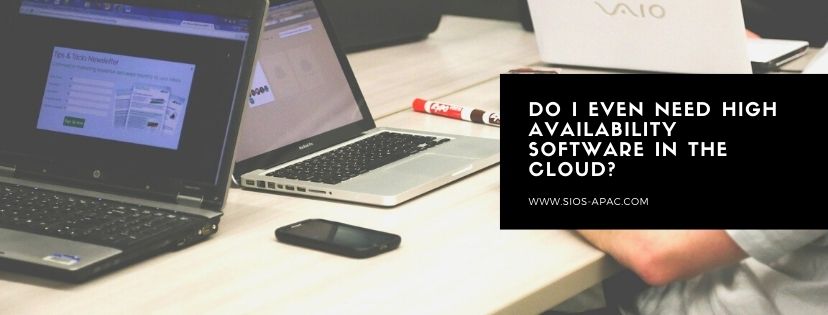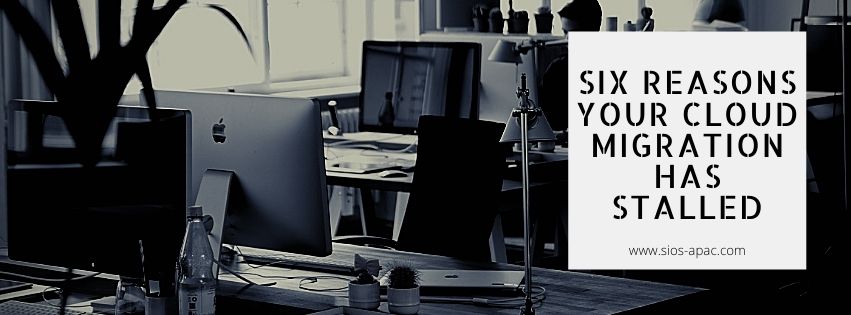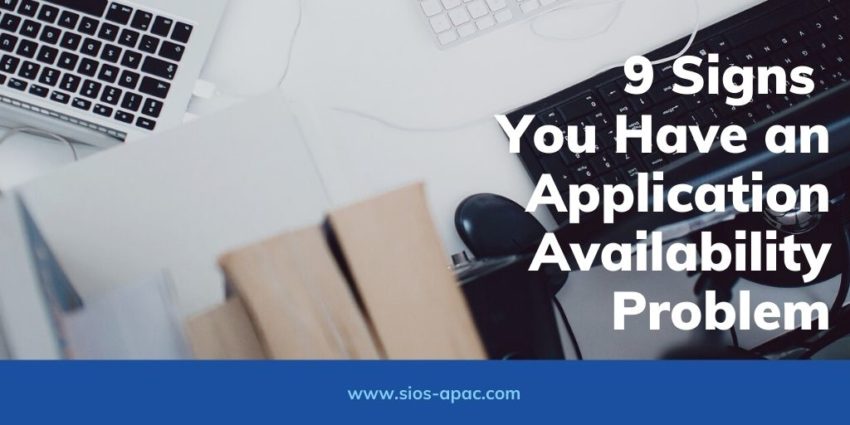Do I Even Need High Availability software in the Cloud?
Allow me to jog your memory . . .
Maybe today you haven’t had a failure in a dozen or more months and suddenly the slam dunk renewal for your high availability software licenses is under the redline of the CFO’s pen. Or perhaps, due in part to the overuse of the term, clever marketing, or the redefinition of high availability your CIO, once the most die-hard availability fan, has begun to waver on its value. Or maybe, just maybe it’s not the CFO or the CIO, but you who decided that you might have enough HA without needing high or higher availability software in the equation.
While the public cloud is incredibly resilient and availability has been considered at many turns, the need for stable, maintainable high availability software is still a present reality. Consider 2020 for example, advances in public cloud computing and availability have still been unable to prevent common mishaps such as bad practice and bad code causing an application crash, undisclosed data center failures, nameless construction snafus affecting power or networking, capacity overload on a VM, or cooling system failures as noted by one CRN article.
Here are seven reasons you still need higher availability software in the Cloud:
1. For increased depth and breadth of application coverage for your most critical enterprise applications
No single Cloud vendor will have all the tools, software, and applications you need baked into their cloud infrastructure in a way that your enterprise can consume. Because of this, you will likely migrate workloads to the cloud into IaaS offerings that require someone or something to protect these workloads and make sure they are highly available.
2. For automated and intelligent application recovery of systems, resources and their dependencies.
Cloud vendors know about clouds. High availability vendors know about application high availability. When, not if, a failure happens in the cloud your application needs intelligent recovery of the failed components; systems, application resources, infrastructure components and their dependencies. As an expert in availability, your software vendor has a breadth of knowledge baked into the application protection. In the SIOS Protection Suite for Linux product, wizard based automation using industry best practices, and a long history of application expertise drive clear automated recovery of applications in a failure scenario
3. For intelligent block level data replication for your application, increasing your resilience in the event of a system panic or datacenter outage
Application coverage and smart, balanced recovery is made possible when the data is available on the standby system in the event of a failure. When your HA vendor includes block level data replication, you are able to expand the failover resilience of your application beyond a single datacenter or region into multiple datacenters and regions. Block level data replication is also an effective way to avoid hardware values that impact cloud volumes in a single data center. One cloud incident involving a datacenter power and subsequent generator failure resulted in hardware damage and data loss for instances running in the single data center. Cloud does not mean that you are completely safe from all failures, and backups as well as highly available data replication copies is a must.
4. For a faster response mechanism for problem detection and resolution
Your HA software is the first line of defense for identifying and remediating application failures. With monitoring daemons, an application failure can be quickly detected and remediated by the software before users are critically impacted. In addition, your high availability software such as the SIOS Protection Suite for Linux solution includes configurable methods for sending and communicating alerts to administrators, event consoles, or dashboards which allows you to instantly and effectively communicate with key .
5. For an additional source of data that can be mined and audited to help predict the health and stability of your enterprise
Data is king. Your high availability software is a tremendous source of data and information about your environment that can be mined and audited. As your HA solution responds to application failures, infrastructure issues and latencies, and drives your uptime through transient failures their logs capture critical information on the health of your enterprise. As VP of Customer Experience, our Customer Success and Support team was able to use our HA logs to provide a health check up to a customer, informing them of several application issues and optimizations possible because of the captured log data.
6. For the balanced and truthful viewpoint, and supplemental wisdom needed for your enterprise
In addition to the value of the High Availability software, there is another reason why you still need HA software in the cloud. That additional reason is the balanced and truthful viewpoint and supplemental wisdom of your HA vendor’s development, services and customer experience teams. Your HA software is supported by a team of experts, experienced availability engineers, and most importantly a services and support team with years of best practice experience, application specific knowledge, and cross pollinated ideas and skills that can greatly benefit your enterprise.
7. For reduced planned maintenance downtime
Last but not least, your higher availability software helps reduce or possibly eliminate the downtime required for upgrades, minor patches, and rolling preventative maintenance. Utilizing your HA software’s switchover and failover capabilities, your standby server can be actively patched, updated, and tested then promoted to being the active availability node. Thereby ensuring that your critical systems are running on the latest releases while minimizing the penalty of upgrades.
Yes, the Cloud has added increased hardware and platform stability for applications, developers, and enterprise users, but if you’ve begun thinking that you don’t need high availability you are heading down a dark alley that ends in the despair of a late night of cold pizza putting applications back online, explaining the unexplainable, and contemplating dusting off resumes. So thanks for letting me jog your memory . . . You and your HA software need each other, even in the Cloud.
– Cassius Rhue, Vice President, Customer Experience
Reproduced with permission from SIOS




